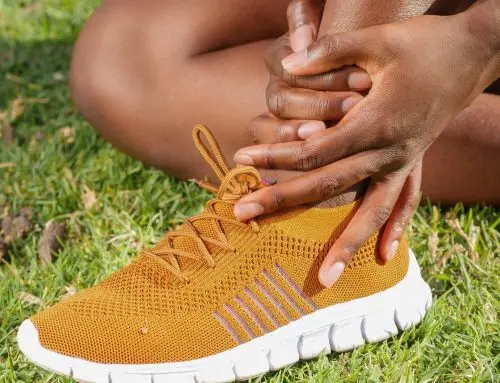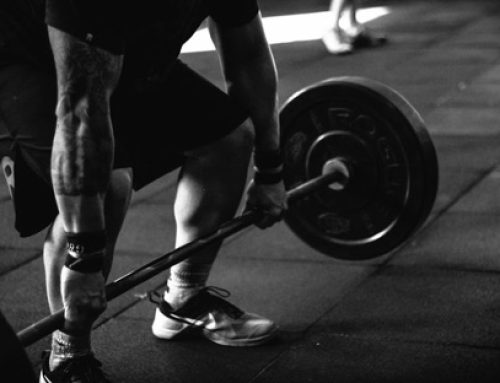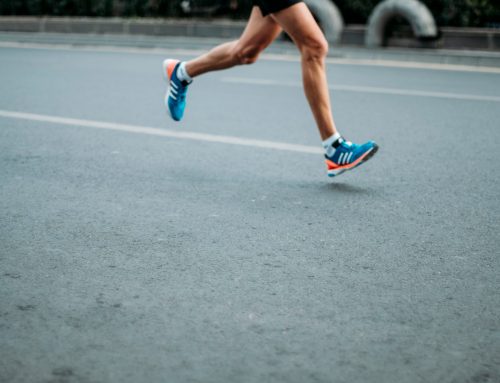Are you one of those people who can barely make it up a flight of stairs without needing a break? Or maybe you’re constantly amazed by those athletic superhumans who seem to effortlessly glide through marathons and break records left and right. Well, before you start cursing your genetics, let’s dive into the fascinating world of how DNA plays a role in shaping our fitness and sports performance. Spoiler alert: it’s not all about who can eat the most donuts and still fit into their skinny jeans. Let’s uncover the secrets behind the genetic lottery of athleticism and why some of us are destined for greatness while others are destined for the couch. So grab a protein shake and get ready to explore the quirky world of genetics and fitness!
Contents
- 1 Genetic Factors Influencing Athletic Ability
- 2 The Impact of Muscle Fiber Type on Sports Performance
- 3 Understanding the Role of Genetic Variations in VO2 Max
- 4 Genetic Predispositions to Injury Risk in Athletes
- 5 Exploring the Influence of Genetics on Speed and Power in Sports
- 6 The Relationship Between Genetics and Endurance in Athletic Performance
- 7 FAQs
- 8 —
- 9 Time to Thank Your Genes
Genetic Factors Influencing Athletic Ability
Ever wonder why some people are natural born athletes while others can’t even run a mile without collapsing in exhaustion? It all comes down to good ol’ genetic factors!
Thanks to our DNA, some people are just built for athletic greatness. Here are some genetic factors that can influence your athletic ability:
- Fast-twitch vs. slow-twitch muscles: Some lucky folks have more fast-twitch muscle fibers, allowing them to sprint like a cheetah. Meanwhile, others are stuck with slow-twitch fibers and struggle to keep up in a race.
- Lung capacity: Your lung size and capacity are largely determined by genetics. So, if you find yourself out of breath after climbing a flight of stairs, you can blame your parents for that one!
- Metabolism: Some people are blessed with a lightning-fast metabolism, making it easier for them to burn calories and stay in peak physical condition. Meanwhile, others can look at a donut and gain 5 pounds.
So, if you’re feeling a little envious of those naturally gifted athletes, just remember – it’s all in the genes! But hey, who needs genetic blessings when you’ve got hard work and determination, right?
The Impact of Muscle Fiber Type on Sports Performance
Have you ever wondered why some athletes excel in certain sports while others struggle to keep up? The secret might lie in their muscle fiber type! Yes, that’s right – those tiny little fibers in your muscles can make all the difference when it comes to sports performance.
So, what exactly are muscle fiber types and how do they impact sports performance? Well, let me break it down for you. There are two main types of muscle fibers – slow-twitch and fast-twitch. Slow-twitch fibers are great for endurance activities like long-distance running or cycling, while fast-twitch fibers are better suited for explosive movements like sprinting or weightlifting.
Picture this: a marathon runner trying to sprint as fast as Usain Bolt. It’s like asking a sloth to race a cheetah – it’s just not going to happen! That’s because the marathon runner likely has a higher percentage of slow-twitch fibers, which are designed for sustained, low-intensity activities. Meanwhile, Usain Bolt probably has a higher percentage of fast-twitch fibers, allowing him to explode out of the blocks and reach top speed in a matter of seconds.
So, if you’re looking to dominate in your sport, it might be worth looking into your muscle fiber type. Sure, you can’t change your genetics, but understanding your body’s strengths and weaknesses can help you tailor your training program to maximize your performance. Who knows, you might just be the next Usain Bolt in the making!

Understanding the Role of Genetic Variations in VO2 Max
Have you ever wondered why some people seem to be able to run marathons effortlessly while others struggle to climb a single flight of stairs without getting winded? Well, the answer might lie in their genetic variations and how it affects their VO2 max.
Genetic variations play a crucial role in determining an individual’s VO2 max, which is the maximum amount of oxygen a person can utilize during intense exercise. This can be influenced by a variety of genes, such as those involved in lung function, heart efficiency, and muscle composition.
For example, individuals with a certain genetic variation may have larger lung capacity, allowing them to take in more oxygen with each breath. Others may have genes that enhance their heart’s ability to pump blood efficiently, delivering oxygen to their muscles more effectively.
So, the next time you find yourself struggling to keep up with your super-fit friend during a workout, just remember that it might all come down to the luck of the genetic draw. But hey, at least you can always blame your genes for holding you back!
![]()
Genetic Predispositions to Injury Risk in Athletes
Ever wonder why some athletes seem to have a knack for getting injured more than others? It might all come down to their genetic predispositions. Here are some interesting tidbits about how our genes can influence our injury risk:
- Certain genetic variations can make us more prone to ligament and tendon injuries. So if you’re constantly tearing something, blame it on your DNA!
- On the flip side, some athletes are blessed with genes that make them less likely to get injured. Talk about unfair advantage!
- Did you know that some people have genes that affect their pain tolerance? That’s right, some athletes might not even realize they’re injured until it’s too late.
But fear not, fellow athletes! Just because you have certain genetic predispositions doesn’t mean you’re doomed to a lifetime of injuries. With the right training, conditioning, and smart decision-making, you can still perform at your best and minimize your risk of getting hurt.

Exploring the Influence of Genetics on Speed and Power in Sports
Genetics can play a significant role in determining an athlete’s speed and power on the field or court. While hard work and training are important, some people are just born with that natural athletic ability that makes them stand out from the rest. Whether it’s sprinting down the track or knocking a ball out of the park, genetics can give some athletes a bit of a head start.
Let’s break it down into two key factors: muscle fiber composition and fast-twitch muscle fibers. Muscle fiber composition: Some people are just born with a higher percentage of fast-twitch muscle fibers, which contract quickly and generate a lot of force. This can give them that explosive power and speed that sets them apart from the competition. Fast-twitch muscle fibers: These bad boys are the key to those quick bursts of speed and power. They can contract up to 10 times faster than slow-twitch fibers, which are more suited to endurance activities.
So, next time you see a record-breaking sprinter or a powerhouse in your favorite sport, remember that their genes might be doing a lot of the heavy lifting. But hey, that doesn’t mean you can’t work hard and reach your own athletic potential. Just maybe dial down the expectations if you didn’t hit the genetic jackpot when it comes to speed and power!
At the end of the day, it’s a combination of nature and nurture that shapes our athletic abilities. So, embrace your genetics, put in the work, and who knows, maybe you’ll be the next speed demon tearing up the field or court!
The Relationship Between Genetics and Endurance in Athletic Performance
Have you ever wondered why some people seem to effortlessly run marathons while others struggle to run a mile? The answer may lie in their genetics! Yes, that’s right – those lucky few who breeze through long-distance races may have inherited the endurance gene.
Studies have shown that certain genetic variations can influence an individual’s aerobic capacity, muscle fiber composition, and overall endurance levels. So, the next time you’re huffing and puffing on the treadmill, blame your ancestors!
But fear not, dear reader! There is hope for us mere mortals too. While we may not have been blessed with the endurance gene, we can still improve our athletic performance through training, nutrition, and good old-fashioned hard work. So lace up those sneakers, hit the gym, and show those genetic elites what you’re made of!
Remember, it’s not all about genetics – sheer determination and a healthy dose of competitive spirit can take you a long way in the world of athletic performance. So whether you’re a genetic freak or just an average Joe, give it your all and never give up on your fitness goals!
FAQs
What role do genetics play in determining athletic ability?
Genetics are like the secret sauce of sports performance – they can determine things like muscle fiber composition, bone structure, and even how efficiently your body uses oxygen. So yeah, they play a pretty big role.
Can genetics determine how fast someone can run or how high they can jump?
Absolutely! Some people hit the genetic jackpot when it comes to speed and power. It’s like they were born with springs in their legs and a turbo boost in their sneakers.
Are there specific genes that are associated with increased muscle mass or endurance?
Oh yes, there are definitely some genes that are like the muscle-building gurus of the genetic world. They can help you pack on muscle faster than a bodybuilder at an all-you-can-eat protein buffet.
Can genetics limit an individual’s potential for fitness and sports performance?
Unfortunately, genetics aren’t always rainbows and butterflies. Some people may have genetic factors that make it harder for them to excel in certain sports or fitness activities. But hey, that’s just life throwing you a curveball.
Is it possible to overcome genetic limitations through training and hard work?
Absolutely! While genetics may give some people a head start, it doesn’t mean you can’t kick butt in the fitness and sports world with some blood, sweat, and tears. So lace up those sneakers and show those genes who’s boss!
—
Time to Thank Your Genes
Now that you know just how much your genetics can impact your fitness and sports performance, it’s time to show some appreciation to those amazing strands of DNA. So next time you hit a new personal best, give your genes a high-five (metaphorically, of course). And remember, even if your genes didn’t exactly bless you with the physique of a Greek god or the speed of a cheetah, with dedication and hard work, you can still achieve great things in the world of fitness and sports. So keep pushing yourself, thank your genes for what they’ve given you, and go conquer those fitness goals!








Leave A Comment